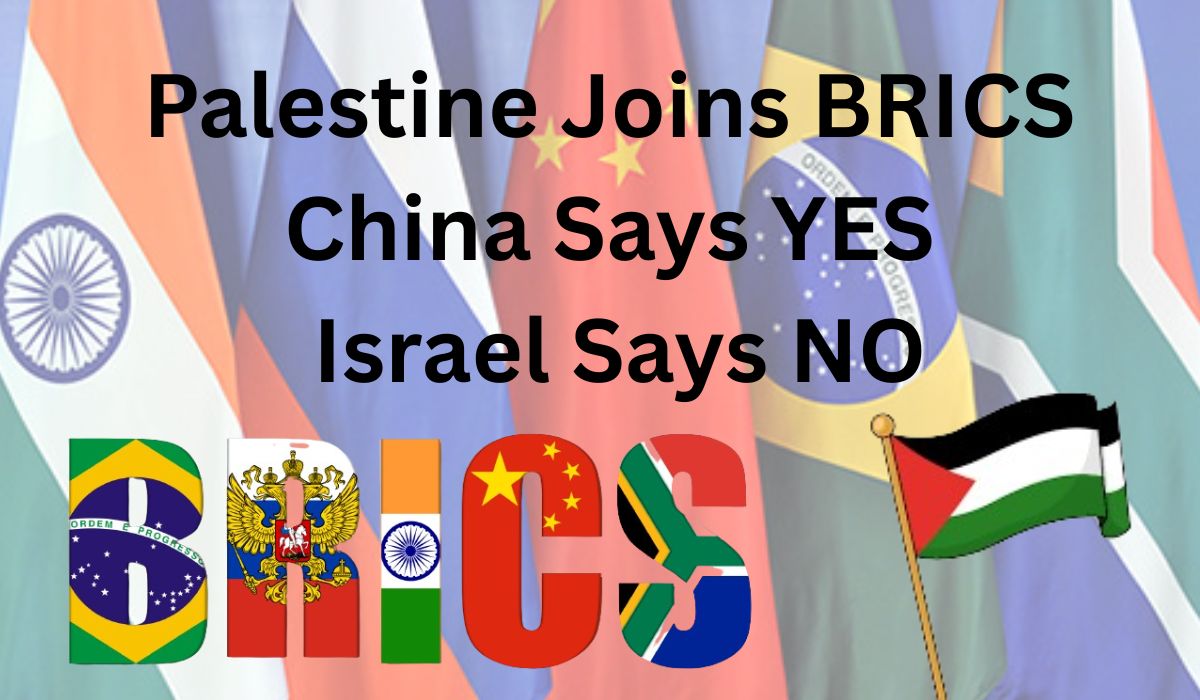Palestine has formally applied for membership in BRICS, marking a significant development in the nation’s efforts to strengthen its position on the international stage. The move comes with backing from China, one of the bloc’s founding members, though the application faces potential geopolitical complications.
Palestine’s Strategic BRICS Application
During recent public statements, Palestinian Ambassador to Russia Abdel Hafiz Nofal revealed the formal membership application. What caught my attention here is the strategic approach being outlined. According to Nofal’s remarks to Russian media, Palestine expects to initially join as a guest member before progressing toward full membership status.
“I believe we will first join as a guest member and later move toward full membership,” Nofal stated in his media interaction. This phased approach suggests a pragmatic strategy for integration into the economic bloc.
Understanding BRICS Expansion
For those unfamiliar, BRICS represents a coalition of major emerging economies. The acronym derives from its founding members: Brazil, Russia, India, China, and South Africa. The significance of this bloc in global economics cannot be overstated.
The organization underwent substantial expansion in 2024, welcoming Egypt, Ethiopia, Iran, and the United Arab Emirates. Indonesia joined in 2025, demonstrating the bloc’s growing appeal among developing nations. Palestine’s application now joins a growing list of countries seeking membership in this influential economic alliance.
China’s Backing Proves Critical
Chinese Foreign Ministry spokesperson Guo Jiakun addressed Palestine’s application during a Beijing press conference, offering what analysts interpret as supportive language. His statement emphasized that “BRICS is an important platform for cooperation among emerging economies and developing countries. It represents a major force in promoting democracy in international relations. We welcome more like-minded countries to BRICS.”
This diplomatic positioning from China provides Palestine with crucial backing from one of BRICS’ most influential members. The pattern here suggests China sees Palestine’s membership as aligned with BRICS’ broader mission of representing developing nations in global economic discussions.
Growing International Recognition
Palestine’s BRICS application comes amid broader international momentum for Palestinian statehood. During recent United Nations General Assembly proceedings, several nations including Canada, Australia, Portugal, and Britain formally recognized Palestine as an independent nation.
This development signals a shifting diplomatic landscape, though it has generated strong reactions. Israeli Prime Minister Benjamin Netanyahu responded sharply during the General Assembly, stating unequivocally that Israel would not accept what he characterized as a “terrorist state” under any circumstances.
The Trump Factor
The analysis gets more complex when examining U.S. positioning. President Trump had previously been reluctant to support Palestinian statehood recognition. According to reports, when multiple nations collectively recognized Palestine as a separate nation, the development caught the Trump administration off guard.
What stands out in this dynamic is the potential for further friction if Palestine’s BRICS membership moves forward. Given Trump’s previous stance and alignment with Israeli positions, Palestinian membership in BRICS could create additional diplomatic tensions between the United States and the economic bloc.
What BRICS Membership Could Mean
If Palestine successfully joins BRICS, even initially as a guest member, the implications extend beyond symbolic recognition. Membership would provide Palestine with stronger backing from Global South nations and integration into economic frameworks representing billions of people and substantial global GDP.
The data reveals that BRICS nations collectively represent over 40% of the world’s population and a growing share of global economic output. For Palestine, this membership could translate into economic opportunities, development partnerships, and amplified voice in international economic discussions.
Looking Ahead
The coming months will prove critical in determining whether Palestine’s application progresses. While China’s support provides significant momentum, the consensus-based nature of BRICS membership decisions means all member nations must agree.
What becomes clear from these developments is that Palestine is pursuing a multi-faceted strategy for international recognition and economic integration. The BRICS application represents not just symbolic positioning but a concrete step toward embedding Palestinian interests within major global economic structures.
The geopolitical implications remain substantial, particularly given existing tensions with Israel and uncertain U.S. positioning. However, the trajectory suggests Palestine is capitalizing on shifting global dynamics and the growing influence of non-Western economic alliances to advance its strategic objectives.
